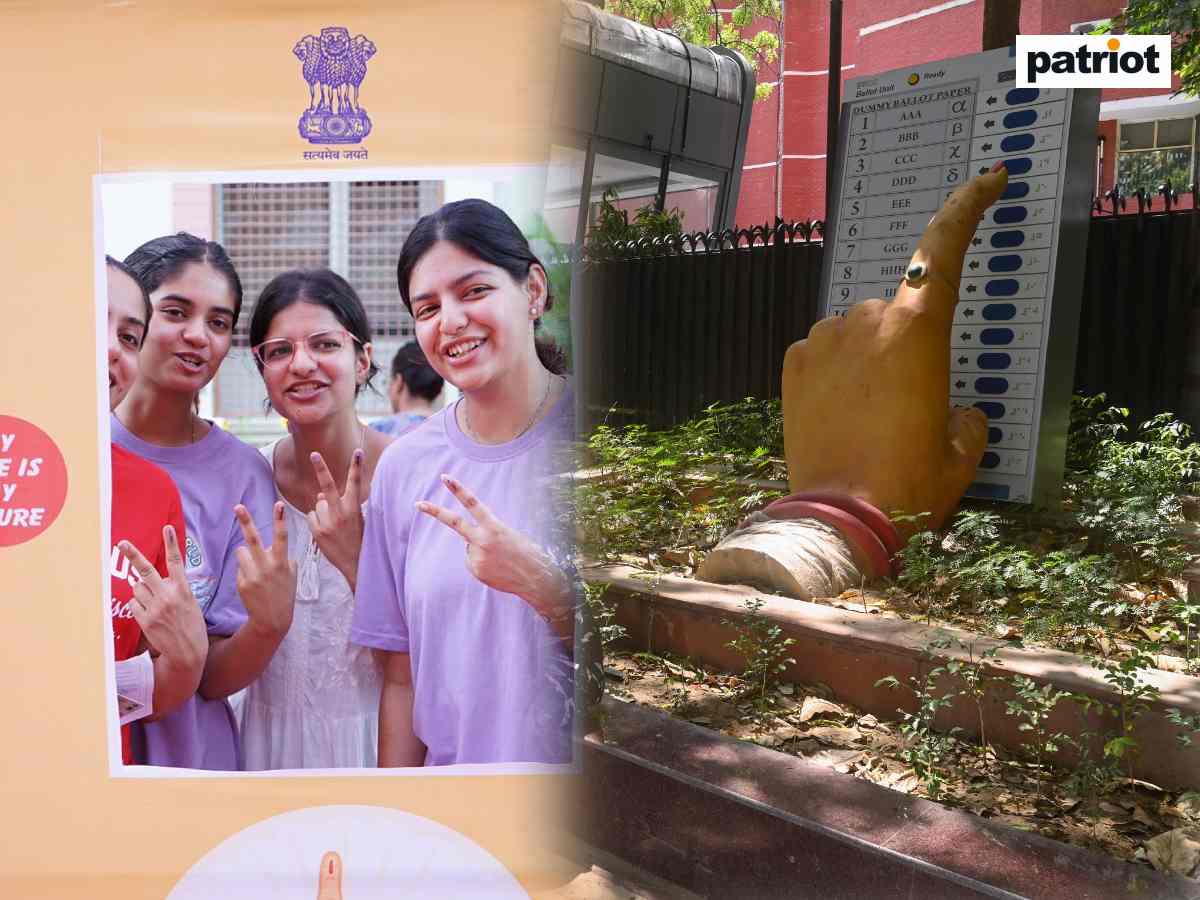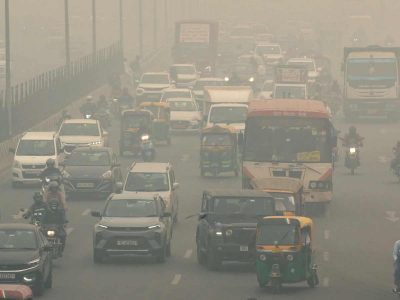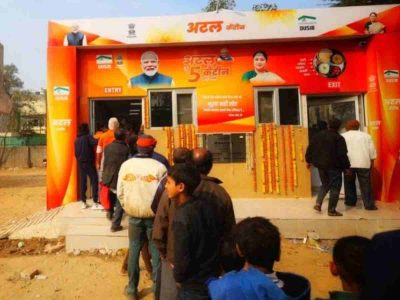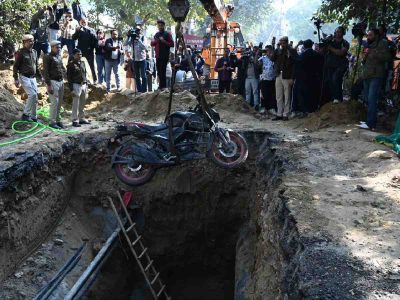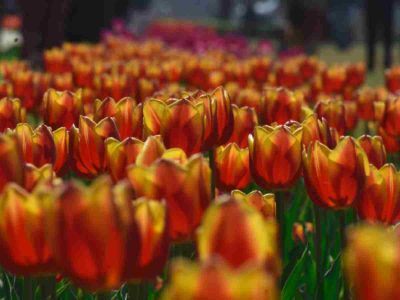Lok Sabha Elections 2024: Delhi on Saturday recorded a voter turnout of 58.70%, its lowest in Lok Sabha polls in 10 years, amid sweltering heat that pushed the maximum temperature to 43.4 degrees Celsius, three degrees above normal for the season.
The city was under an “orange” alert on the polling day, with the maximum temperature being recorded at 43.4 degrees Celsius, 3.2 notches above the season’s average, according to the India Meteorological Department (IMD).
That reflected on the ground as the turnout was much lower than the 60.52% in 2019 and 65.10% in the 2014 Lok Sabha polls.
The Capital recorded 51.86% voting during the 2009 general elections.
The highest turnout (58.3%) was recorded in the North East Delhi constituency, while the New Delhi seat had the lowest voting percentage at 51.54%. North East Delhi had also recorded the highest turnout in 2019 with 63.81%.
Aware of the predicted heatwave, the Delhi election chief’s office had proactively taken measures to mitigate the weather’s adverse effects on voters. Polling for this crucial sixth phase began at 7 am on Saturday.
Rajendra Kaur, paramedical staff at Rajkiya Pratibha Vikas Vidyalaya in Civil Lines, described the arrangements at the polling booth, saying, “Two health officials were appointed to handle any sort of medical emergency during the voting. We had a medical kit ready, which included ORS and general medicines to assist people.”
Tara, another paramedical staff member, added that an ambulance was deployed at the polling stations.
“We were also in touch with all the nearest hospitals in case of any emergency,” she said.
A senior booth official, familiar with the arrangements, mentioned that the State Election Commission had installed sheds at all polling stations across the national capital to ensure people stand comfortably in queues.
The atmosphere during voting in Delhi was charged with a sense of civic duty and enthusiasm. Streets and polling stations were abuzz with activity as citizens exercised their democratic right. Typically, long queues formed early in the morning. The diverse population, spanning different ages and backgrounds, came together in a unified display of participation.
No instances of violence were recorded in the constituencies. Around one lakh security personnel were deployed in Delhi for the polling day, with the Delhi election chief’s office receiving live telecast from critical booths.
Also read: Delhi Elections 2024: EVMs malfunction, VVPAT slips get stuck in North East Delhi
First-time voters, complaints
Coming straight from the gym, Sanath Yadav, a first-time voter, cast his vote at the MCD Senior Secondary School in Tughlakabad.
Yadav, 18, said, “Today, I am feeling very privileged and enthusiastic as I am voting to choose my representative for the first time. I am voting on issues such as the education, health, and infrastructure. The education system is the backbone of the country’s growth, so the government should prioritise working for the betterment of the sector. However, the law-and-order situation should also be the focus of the authorities.”
He added, “The residents of my locality are also tired of the long traffic jams. The government should work on improving the infrastructure to address these key problems.”
However, multiple polling booths in the national capital reported issues due to VVPAT slips not functioning.
Shakib Khan (name changed) claimed that two polling stations at the Karawal Nagar school were intentionally slowed down to prevent voters from exercising their right.
“Both of these polling stations have Muslims voting in majority which is why the voting is not as smooth. The presiding officer in the station is taking at least five minutes per voter, while the queue keeps increasing,” Khan alleged.
Rajan Singh, the 26-year-old transgender candidate from South Delhi, alleged they were disallowed from voting and assaulted by electoral office personnel for demanding a separate queue for transgender persons.
Lok Sabha Elections: Facilities for the elderly and disabled
Vidya Sagar Sarin, 94, returned from Canada four days ago just to cast his vote.
Sarin, who is disabled, exercised his right to vote at the polling station in Greater Kailash – 1.
“I returned from Canada only four days ago just to cast my vote and choose the leader of our country. Many things have changed in the last 10 years, but we want more development,” said Sarin.
“I have a home in Greater Kailash – 1. The major concern in the locality is that the footpaths are broken and there are several potholes on the roads. I cannot walk without a crutch. It becomes very difficult for me to walk on the streets,” Sarin said.
In the New Delhi constituency, the voters were excited to cast their votes in the morning hours but the turnout recorded a drop as the heat increased during the day . People started gathering outside the polling booths from 7 am with their voter IDs and voting slips. Many voters complained that there was a lack of cooling facilities at polling stations.
Apoorva, a first-time voter from Moti Bagh, expressed her excitement, saying, “We want women security-related issues to be taken up on priority. In many areas of the national capital, we are lacking street lights. That is the main cause of crime against women.”
At the pink booths, women were seen capturing pictures at the selfie points and hand-drawn paintings.
Building momentum
Campaigns and rallies built momentum ahead of the polling day, adding to the anticipation. Political parties set up booths near the polling stations, offering assistance and last-minute persuasion.
Security was heightened, with police and security personnel ensuring safety and smooth conduct of polls. The Election Commission’s vigilance was evident through stringent measures to prevent malpractices, ensuring transparency.
The seven parliamentary constituencies in the Capital are New Delhi, Chandni Chowk, East Delhi, North East Delhi, South Delhi, North West Delhi, and West Delhi.
Aam Aadmi Party (AAP) and Congress decided to share seats in the ratio of 4:3 in the INDIA Alliance, while the Bharatiya Janata Party (BJP) fielded six new candidates out of their seven, retaining only Manoj Tiwari of the North East constituency.
The BJP has fielded Bansuri Swaraj, daughter of former External Affairs Minister Sushma Swaraj, from the New Delhi constituency against AAP’s three-term Malviya Nagar MLA Somnath Bharti. AAP’s Kuldeep Kumar is up against BJP’s Harsh Malhotra, the former mayor of East Delhi Municipal Corporation (EDMC), for the East Delhi seat.
In South Delhi, Ramvir Singh Bidhuri, brother of outgoing MP Ramesh Bidhuri, and representing BJP is facing AAP’s incumbent Tughlakabad MLA Sahiram Pahalwan.
The battle for the North East Delhi seat has grabbed the most eyeballs with Tiwari facing Congress’s youth face, Kanhaiya Kumar.
These Lok Sabha elections may also be the swansong for Jai Prakash Agarwal, the oldest candidate. He is contesting the Chandni Chowk seat against BJP’s Praveen Khandelwal.
The BJP had swept all of Delhi’s constituencies in 2014 and 2019 elections.
Lok Sabha Elections: Technical glitches in Gurugram
Gurugram, which also went to polls on Saturday, witnessed at least eight Electronic Voting Machines (EVMs) being replaced due to technical glitches in different polling stations, causing a delay in voting by an hour, officials said.
“The EVMs were replaced at eight locations. Later, polling progressed smoothly,” the officials said.
However, 45-year-old Independent MLA Rakesh Daulatabad from Haryana’s Badshahpur assembly constituency died of a heart attack this morning, police said. He was taken to the hospital where he died during treatment.
“However, this is not the final figure”, said Delhi CEO office.
Also read: Lok Sabha elections 2024: Seamless voting in Delhi with live webcasting at critical booths
(The article is written by Saurav Gupta, Kushan Niyogi and Idrees Bukhtiyar)

